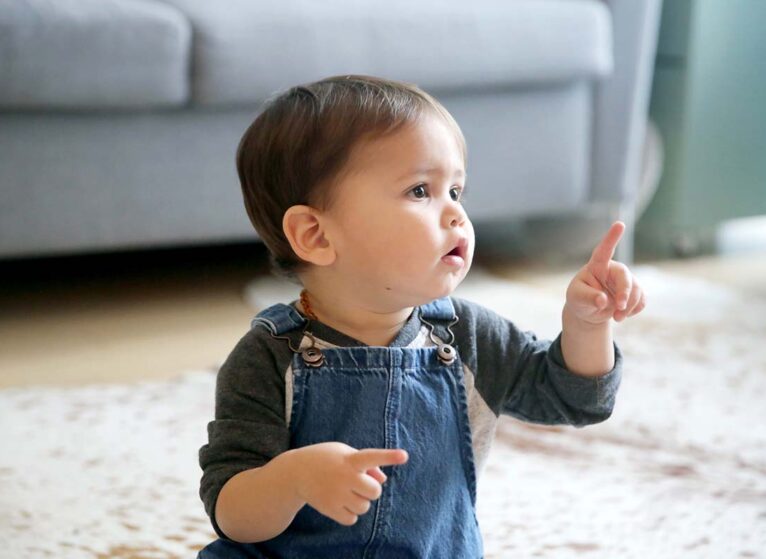Milestones are goals that let us know that we’re on the right path. And the same is true for child development. While every child’s path is a little different, milestones are usually ticked off in a predictable pattern. But what do you do when your child misses a milestone?
When your child misses a milestone as they're growing up, it's called a developmental delay. And they're not uncommon. About 20% of children have some kind of developmental delay. Most experts think that number is underreported.
Sometimes, a kid just needs a little more time than others to reach a milestone. But when do you wait things out, and when is it time to talk to an expert?
What Do Developmental Delays Look Like?
A developmental delay can happen in any of the areas of child development. These areas are:
- Thinking skills (cognitive)
- Social/emotional skills
- Language skills
- Physical skills (motor)
Some delays affect multiple areas of development. Global developmental delays affect all areas of development.
Types of Developmental Delays
What the developmental delay looks like will depend on:
- Your child’s age
- What area is impacted
Developmental delays might look like:
| Age | Cognitive Delay | Social/Emotional Delay | Language/Speech Delay | Motor delay |
|---|---|---|---|---|
| 6 Months | Doesn’t show interest in toys | Doesn’t laugh or look at faces | Doesn’t make noises to communicate | Doesn’t roll over |
| 1 Year | Doesn’t look for toys | Doesn’t respond differently to strangers vs. family | Doesn’t understand ‘no’ or try to say words | Can’t pick things up with thumb and pointer finger |
| 18 Months | Doesn’t stack objects or roll toys with wheels | Doesn’t display emotions, like excitement or fear | Doesn’t follow one-step directions like ‘stop’ or ‘let me see.’ | Is unable to take a few steps on their own |
| 2 years | Doesn't try to use switches or buttons | Doesn’t look at familiar faces to see reactions | Doesn’t say 2 words together | Doesn’t run |
But these are just some examples. For a full list of milestones from ages 2 months through 5 years, check out the Center for Disease Control’s list of developmental milestones.
Developmental Delays Are Often Normal
In some cases, developmental delays are expected. When a child is born extremely prematurely or with a serious condition, like congenital heart disease, they’re more likely to have delays. UVA Health Children's has follow-up programs for NICU graduates and children born with CHD to assess their development.
Children can develop at different speeds. They can also develop unevenly across the skill areas. A child who can run at 18 months may be ahead of their peers for motor skills but behind in other areas.
There are some wonderful characteristics that can also cause delays. Children growing up in households with 2 languages are more likely to be speech-delayed. But they’re also able to understand and speak both languages when they do start talking.
But when delays happen across multiple areas of development, it's more concerning. It’s also concerning when they affect a child’s daily life. When all of their playmates start talking, it’s easy for a child with a speech delay to get left out.
Talk to Your Pediatrician
Pediatricians often start appointments by talking about milestones. These are great opportunities to talk about concerns. They can answer your questions and start the process of getting help if your child's developmental delay needs it.
It’s also important to be honest with your provider at these visits. In parent groups, it’s fine to brag about your child saying ‘Mama’ and ‘Dada.’ With your pediatrician, you should probably add whether or not they’re using them in a way that makes sense.
Depending on your level of concern and what your provider observes, they may recommend:
- Waiting and watching
- Seeing a developmental pediatrician
- Beginning early intervention
Early Intervention Improves Outcomes
Concerned About a Developmental Delay?
Your pediatrician can help connect you to care.
Early Intervention is a service that helps children under the age of 3 who are showing early delays. These specialists will work with your family, often in your own home. "Starting care early is critical to addressing the mental health and developmental health needs of children," says Madhusmita Misra, MD, MPH, physician-in-chief for UVA Health Children's.
Outpatient therapists can spot barriers, create exercises, and make sure your child is improving. They can also help you know how you can help your child thrive.
Your child can get outpatient therapy while waiting for a diagnosis and assessment. Whether or not your child has a neurodevelopmental condition, these therapies can be hugely beneficial. They don't take the place of a medical diagnosis, but these therapies are a great support.
Removing Barriers to Treatment for Neurodevelopmental Delays
Early diagnosis and treatment of neurodevelopmental delays leads to better outcomes. Many of the mental health concerns that come with neurodevelopmental conditions are a result of late diagnosis, frustration, and isolation.
But, early diagnosis is often easier said than done. Nationally, the wait time for neurodevelopmental evaluation is long. And it's intimidating for parents to wonder if their child even needs to be seen.
That’s why UVA Health Children’s teamed up with Sentara to open the Neurodevelopmental & Behavioral Health Center. Coupled with the promise to hire more providers and see every child, regardless of ability to pay, we’re improving access.
"Our goal with this clinic is to make that vital care as easy to access as possible," notes Misra.


